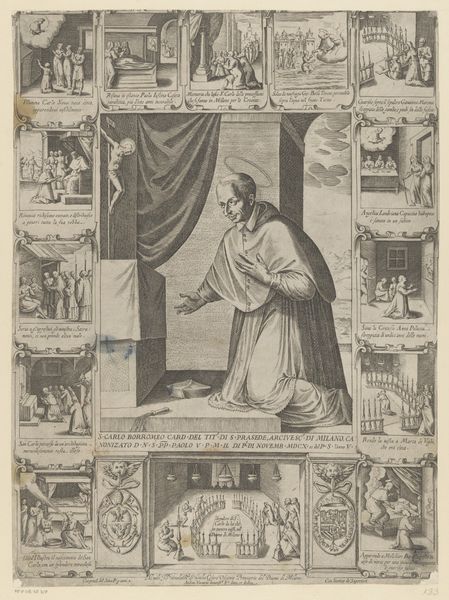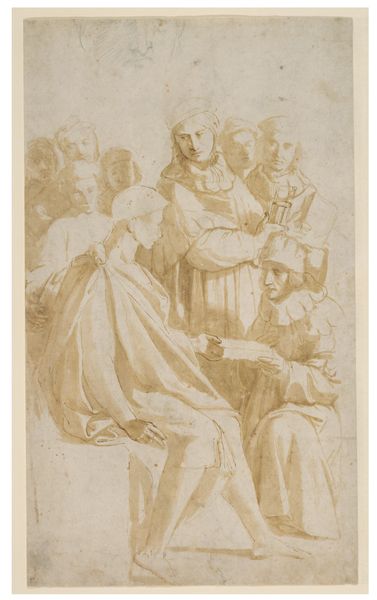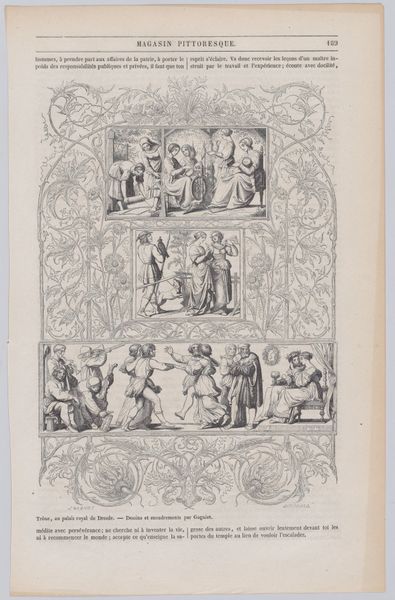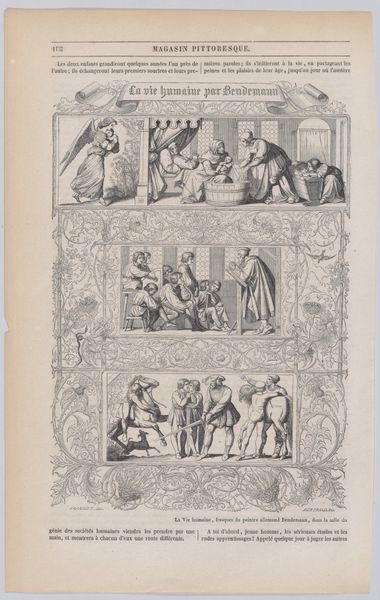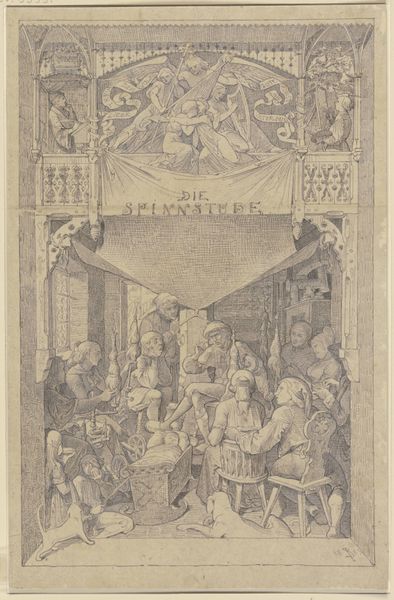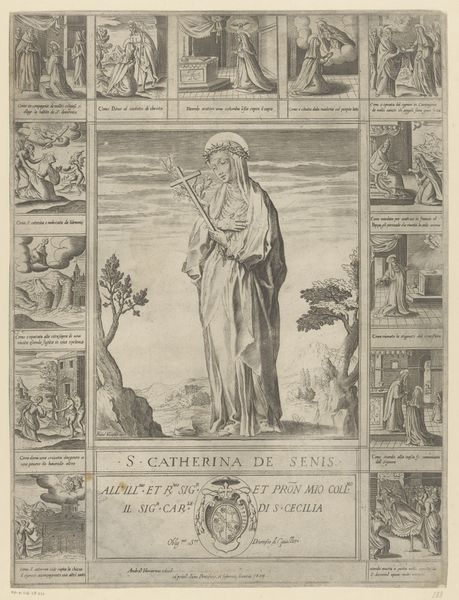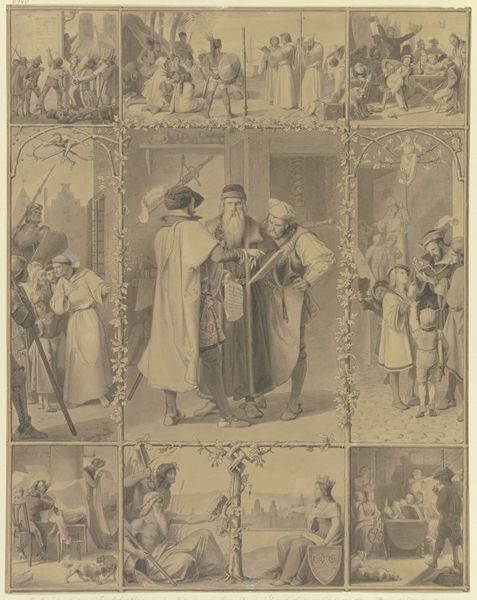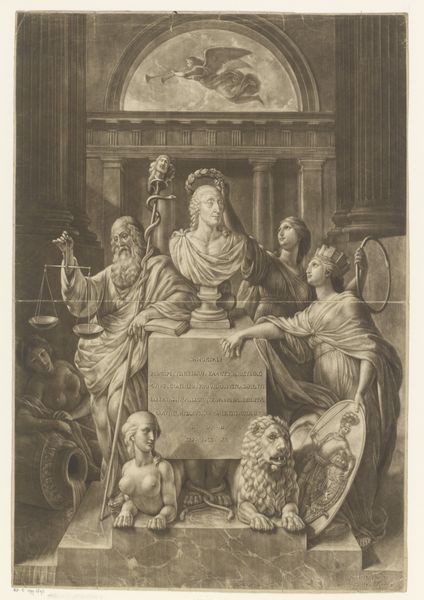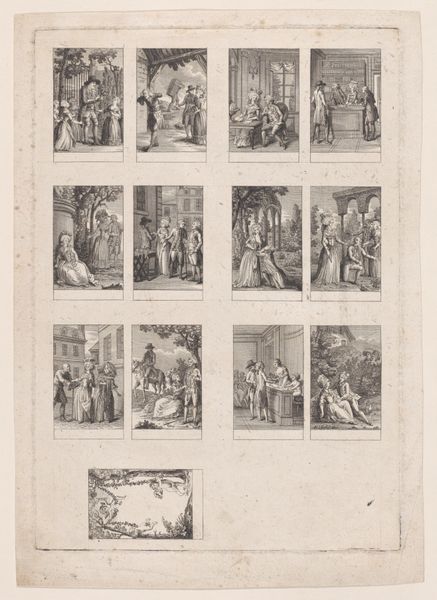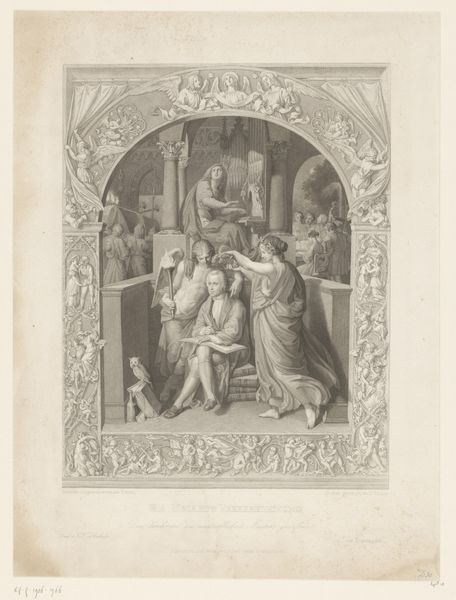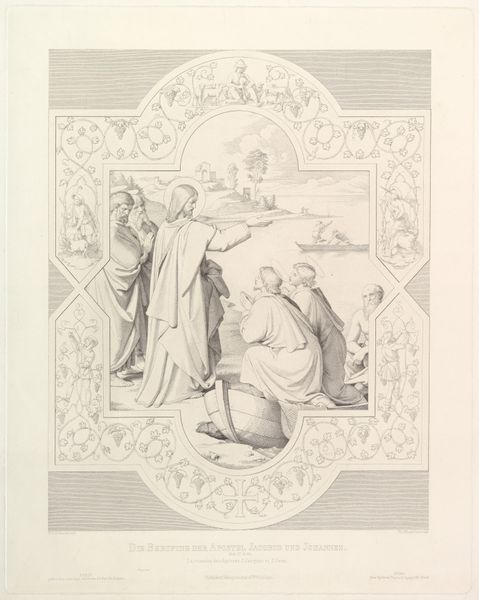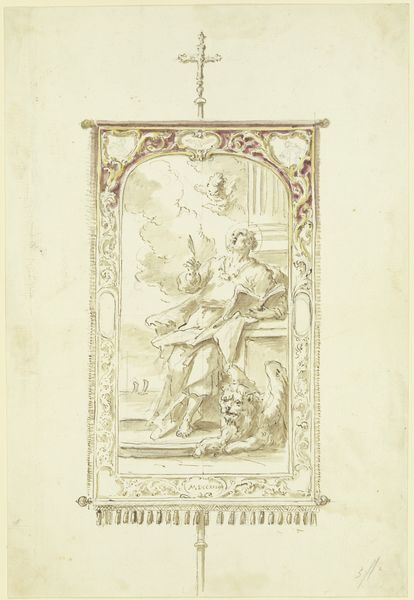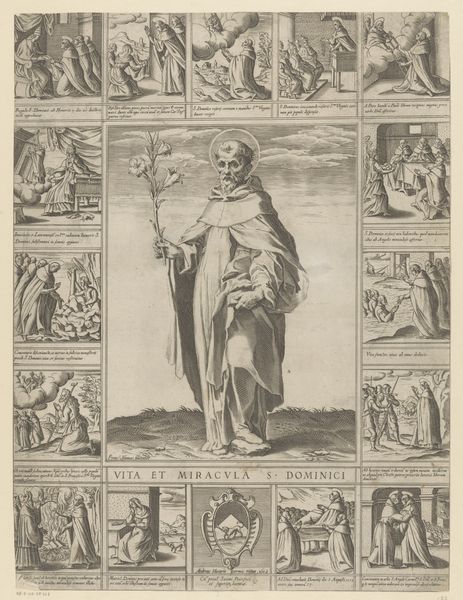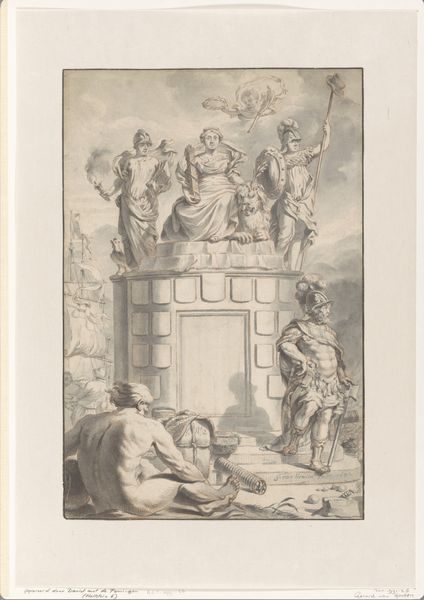
Schiller am Schreibtisch, umgeben von zehn Darstellungen aus seinen Dramen
0:00
0:00
drawing, pencil
#
portrait
#
drawing
#
romanticism
#
pencil
#
history-painting
#
watercolor
Copyright: Joan of Arc
Editor: This is Alfred Rethel's drawing "Schiller am Schreibtisch, umgeben von zehn Darstellungen aus seinen Dramen." The softness of the pencil and the overall muted tones create quite a contemplative, almost reverent mood. I’m struck by how Schiller is framed by scenes from his own plays – what do you see in this piece? Curator: It's fascinating, isn't it? Look at how Rethel positions Schiller at the very center, illuminated, a source of light. But also observe how that light throws those surrounding images into even greater contrast. Think of these images not merely as illustrations of Schiller's work, but as extensions of his very being. They become the theater of his mind, filled with heroic struggles and complex moral quandaries. Do you see a pattern in those selected scenes? Editor: Now that you mention it, they all seem to represent moments of intense conflict, almost operatic in their drama. It’s as if the most powerful emotional moments have escaped the pages of his dramas. Curator: Precisely. Rethel gives form to the very essence of Romanticism here. Each image has cultural resonance—an appeal to emotion and an embrace of individuality. And think about the act of writing itself – the solitary figure at his desk – how does that contribute to our understanding of the piece? Editor: I guess it emphasizes the individual's struggle to create something lasting, to give form to powerful ideas and emotions. The writing becomes an almost heroic act in itself. Curator: Indeed! Rethel turns Schiller into an icon—a symbol of intellectual and creative struggle that speaks even now. Through these selected scenes, Rethel paints a portrait of both the man and the impact his ideas still have. Editor: I see that now; it really does act as a cultural mirror, reflecting both Schiller's time and our own understanding of creativity and conflict. Thanks, this was enlightening.
Comments
No comments
Be the first to comment and join the conversation on the ultimate creative platform.
